
Photo by Louise Jasper
Alasdair Harris founded Blue Ventures, an ocean conservation enterprise supporting local fishing communities. Here, he speaks to Trudy Ross about the work they do across the globe, and the greatest challenges facing our oceans today
LUX: You have described yourself as a ‘reluctant social entrepreneur’. Can you expand on this?
Alasdair Harris: I studied zoology at University in Scotland, and was quickly hooked on marine science. I was enormously lucky to have an opportunity to study the impacts of climate change on reefs in the Indian Ocean, but was horrified by what I learned of the forecasts of ocean warming, and what that meant for the future of coral reefs. It wasn’t until I got to Madagascar − one of the poorest countries on earth − that I learned that there were also dire human implications of these unprecedented environmental changes. In particular, the impacts that climate change and overfishing were already having on the many millions of people in coastal communities that depend on the sea for their daily survival.
As a biologist I knew that the ocean is phenomenally productive, and that marine ecosystems have an amazing power to restore themselves, if we just give them the breathing space to recover. Working in Madagascar, I was struck by the overwhelming need to help communities cope with the challenges they faced from collapsing fish stocks. I saw that there was a critical need for conservation that worked for rather than against communities, harnessing the natural regenerative capacity of nature to help rebuild fisheries. But I realised that my PhD studies weren’t really going to help. So I hung up my diving fins and, with a couple of friends, I set up an organisation to try to work with coastal communities to explore ways of helping villages take practical action to rebuild their fisheries.
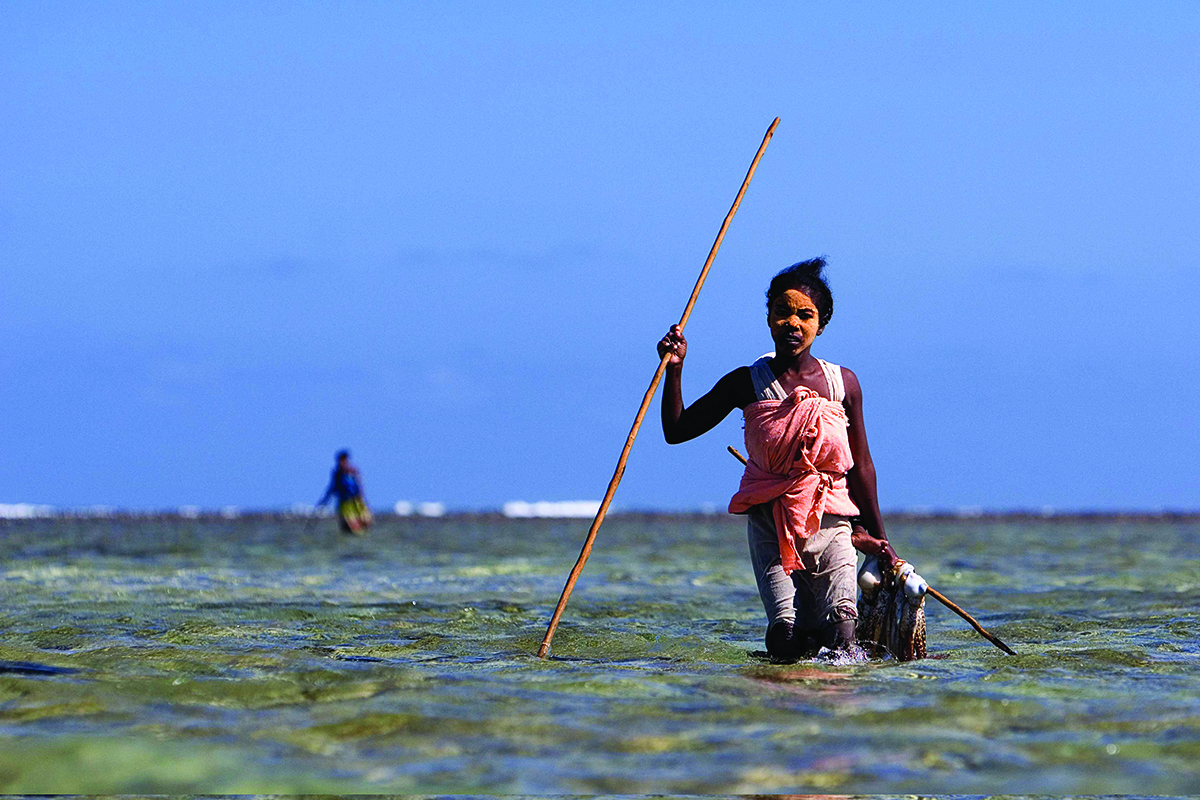
Photo by Garth Cripps
LUX: Can you provide some background on Blue Ventures, your goals, values, and the kinds of projects you run?
AH: Blue Ventures is a marine conservation organisation that works with coastal communities to rebuild fisheries, restore ocean life, and build lasting pathways to prosperity. We partner with traditional fishers and community-based organisations to design, scale, strengthen, and sustain fisheries management and conservation at the community level. We also bring partners together in networks to advocate for reform and share tools and best practices to support fishing communities across the globe.
Our work has helped to establish and protect vast swathes of coastal waters in Locally Managed Marine Areas, including the largest such areas in the Indian Ocean. We have also enabled fishers to boost their catches and incomes, improve their food security, and restore ocean life.
Follow LUX on Instagram: luxthemagazine
In 2003, we started with one community in southwest Madagascar. Today, we are working across 14 countries across the tropics, protecting 17,000 km2 of vital ocean habitat and impacting the lives of more than 650,000 people.
LUX: Do you ever face resistance from locals, for whom fishing is their livelihood, when you recommend strategies which differ from their own? How do you approach this?
AH: Our approach is to work with communities to draw on the local knowledge, so that fishermen and women can come up with their own solutions to the challenges facing their seas. We can help with harnessing the power of data to enable communities to better interpret and visualise what’s going on in the water, and also by brokering learning exchanges with other communities that have piloted similar work and interventions elsewhere. We’ve helped build friendships and relationships between countless communities from dozens of countries over the years, from as far afield as Mexico and Mozambique – with community members travelling to meet others facing similar challenges.
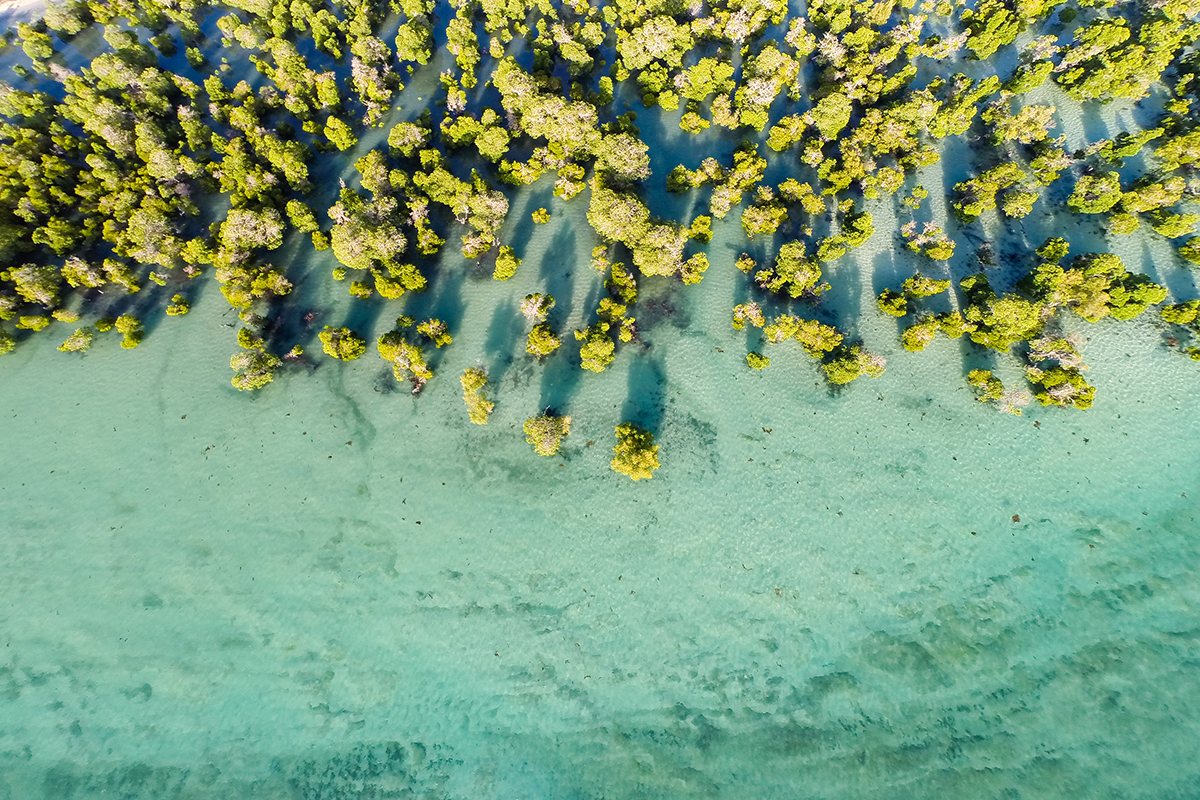
Mangrove forest, Lambaora, south west Madagascar. Photo by Garth Cripps
LUX: What are the biggest challenges facing the fishing industry and our oceans, and what should corporations and governments be doing to combat this?
AH: The biggest challenge facing ocean fishing today is the total control and dominance of the sector by a small, and frequently highly destructive minority of predominantly unsustainable actors: so-called industrial fishing boats and companies. Conversely, the biggest group of ocean users – known as small-scale fishers – typically fishes relatively sustainably, and targets catches for local consumption and trade, supporting the livelihoods of over 100 million people, and feeding well over 1 billion.
Yet this population, which lives overwhelmingly in the so-called Global South, rarely has a voice in decisions regarding how, where, or when fishing takes place. The majority of fishing is carried out by politically powerful industrial fishing interests, which catch around one half of our seafood globally, and cause staggering damage to our oceans. The biggest proportion of this industrial catch is caught by bottom trawlers, vessels that drag weighted nets over the seabed to scrape up seafood. In some parts of the world over half of all seafood landed is caught in this way. Bottom trawling can be hugely devastating for marine ecosystems and those who rely upon them to eat and to live.
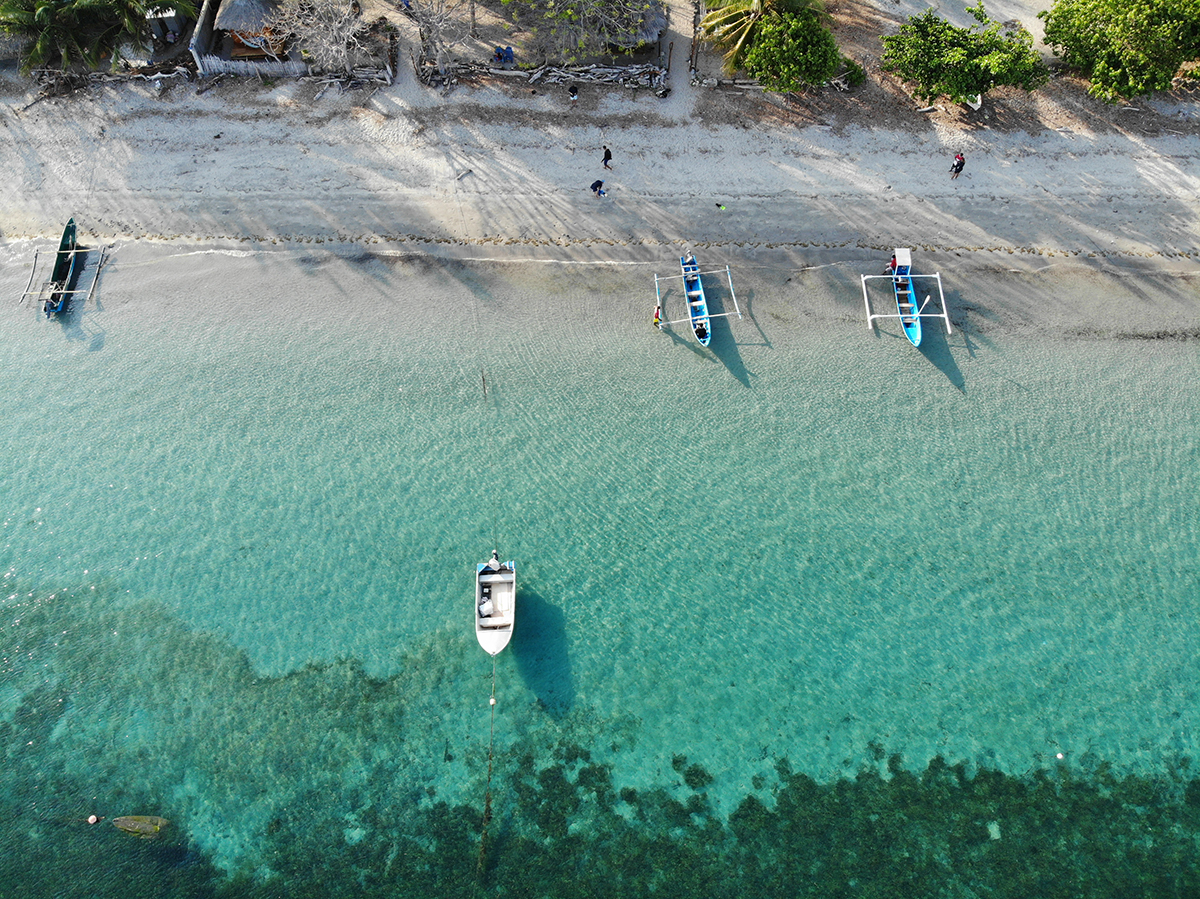
Drone shot over Barry’s Place, Atauro. Photo by Matthew Judge
LUX: Can you tell us about your work with maternal and child health, and why this is important to you?
AH: Given the lack of basic services in many remote coastal regions, in some countries we also help communities access basic healthcare through training and supporting women to serve as community health workers. We do not replace government health systems, but work to strengthen existing structures in close collaboration with government health actors and specialist NGOs. We also incubate Madagascar’s national health-environment network, which brings together 40 partner organisations to address the health needs of communities living in areas of conservation importance across the country.
Read more: Wendy Schmidt on philanthropy, technology and unexplored oceans
LUX: How can we utilise data and technology to improve the management of small-scale fisheries?
AH: Technology can play a transformative role in our mission, improving the speed, efficiency and inclusivity with which we work and communicate. From VR headsets that help communities visualise the underwater benefits of marine recovery, to satellite sensors that can track ocean warming, or monitor recovery of mangrove forests from space and provide. We’re committed to putting data and information in the hands of communities, to empowering them with the knowledge they need to rebuild fisheries.
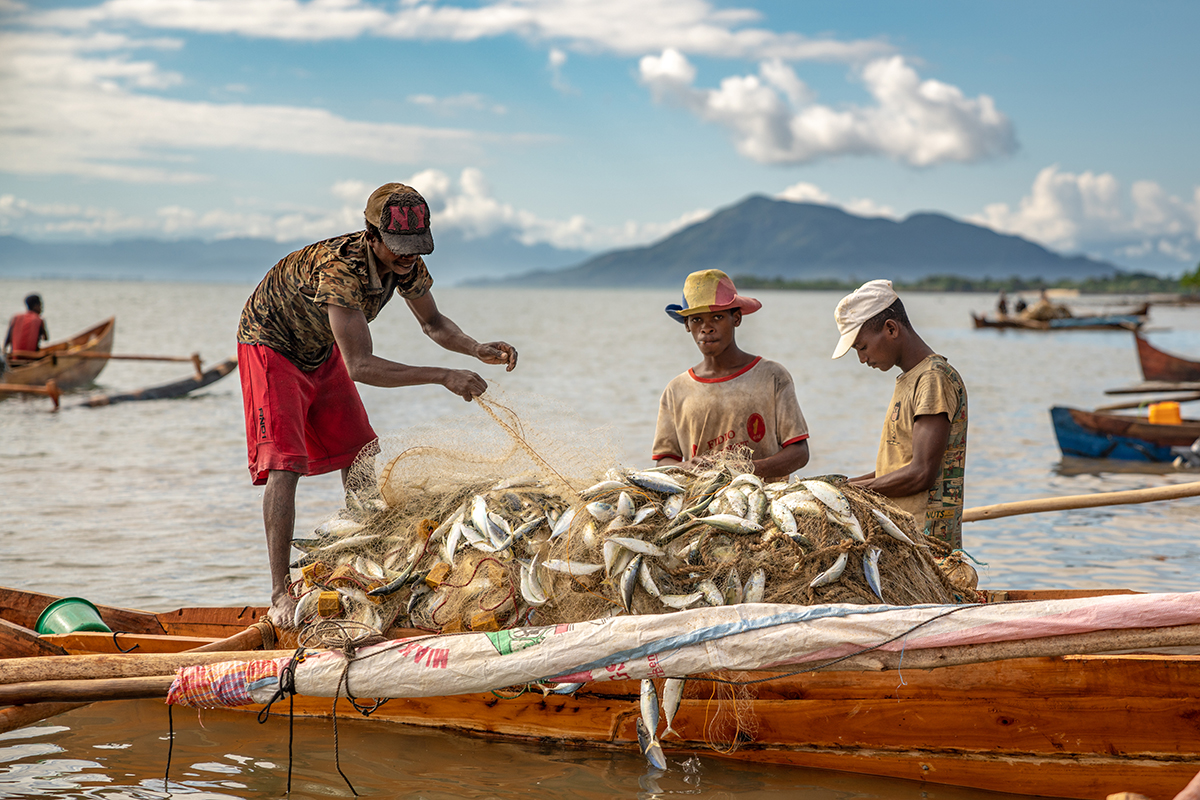
Photo by Leah Glass
LUX: Do you believe it is possible for people to engage with marine tourism while promoting sustainable practices?
AH: Absolutely! Tourism done well can provide vital income for coastal communities worldwide, demonstrating the value of protecting the ocean. Done badly tourism can quickly undermine ecosystems, cultures and livelihoods. As tourists we have a huge role to play in being judicious in how we travel, and what practices and services we choose to support with our custom.
LUX: Finally, what advice would you give to an aspiring social entrepreneur looking to make a difference in the realm of sustainability?
AH: We’re living in an ecological emergency of unimaginable proportions and consequences. Ours is the last generation with a realistic chance of helping our species change course without causing irreparable harm to future generations and without causing catastrophic harm to most other species on our only planet. Change happens when an individual makes a decision to act. Don’t wait for someone else.
Find out more: blueventures.org
All photos courtesy of Blue Ventures

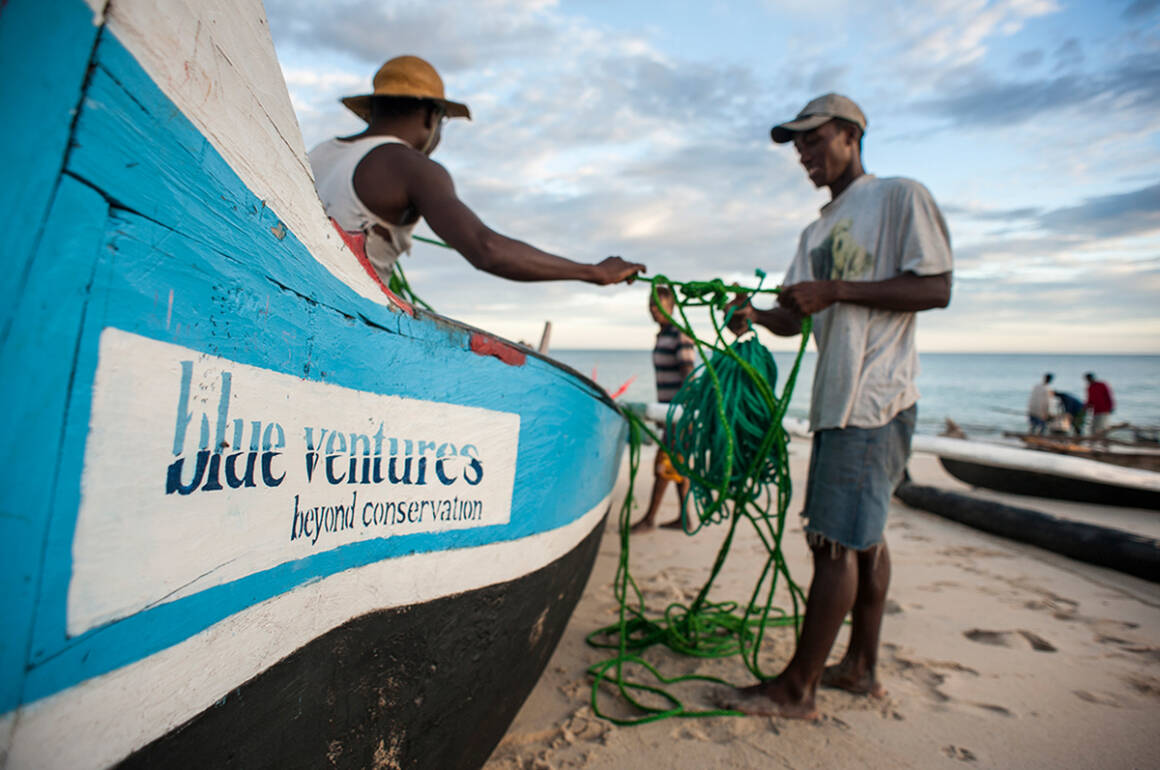




Recent Comments